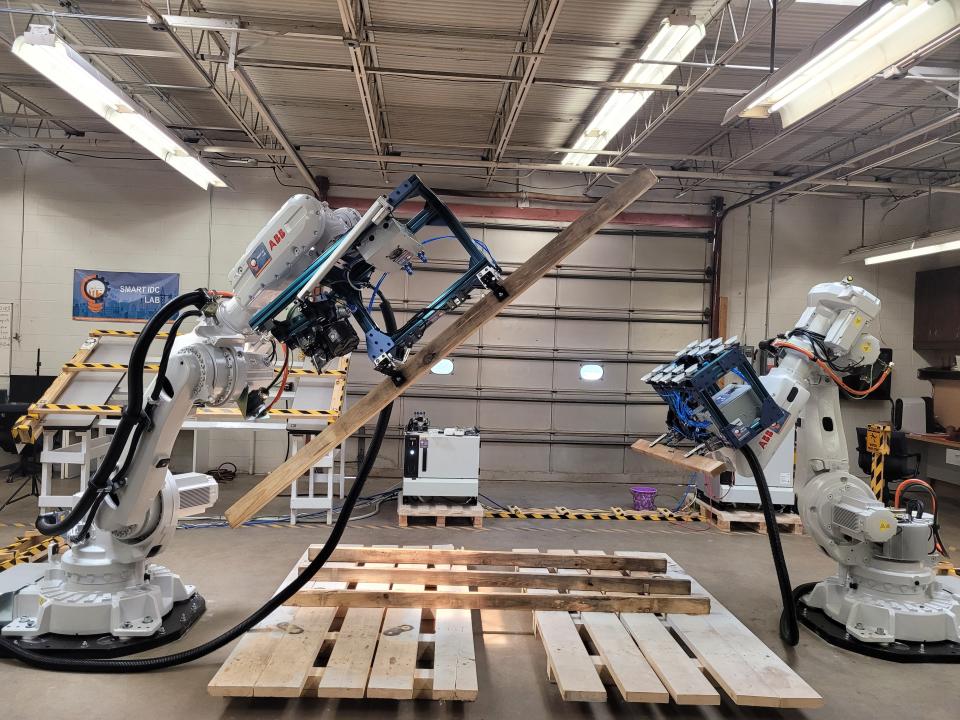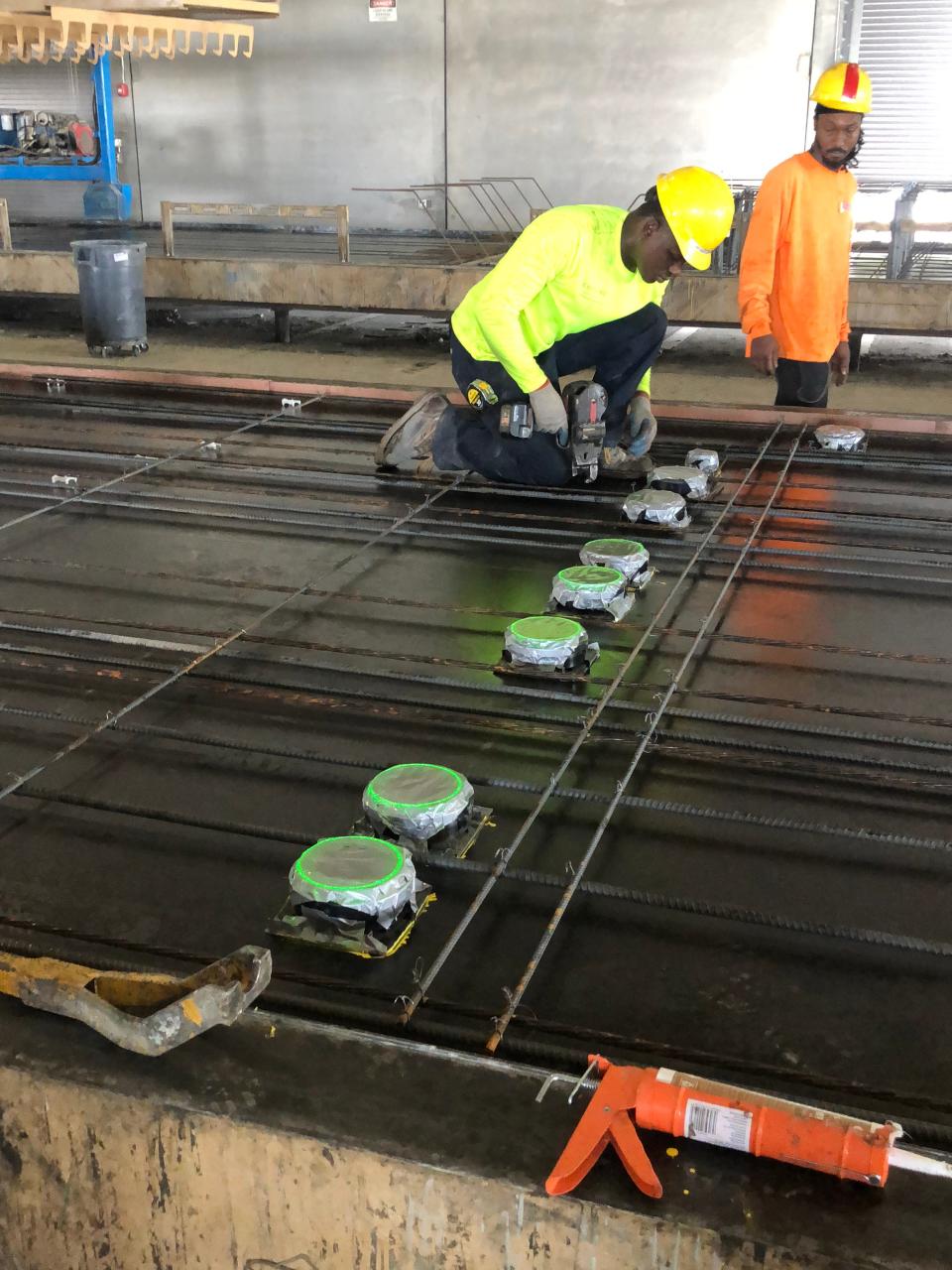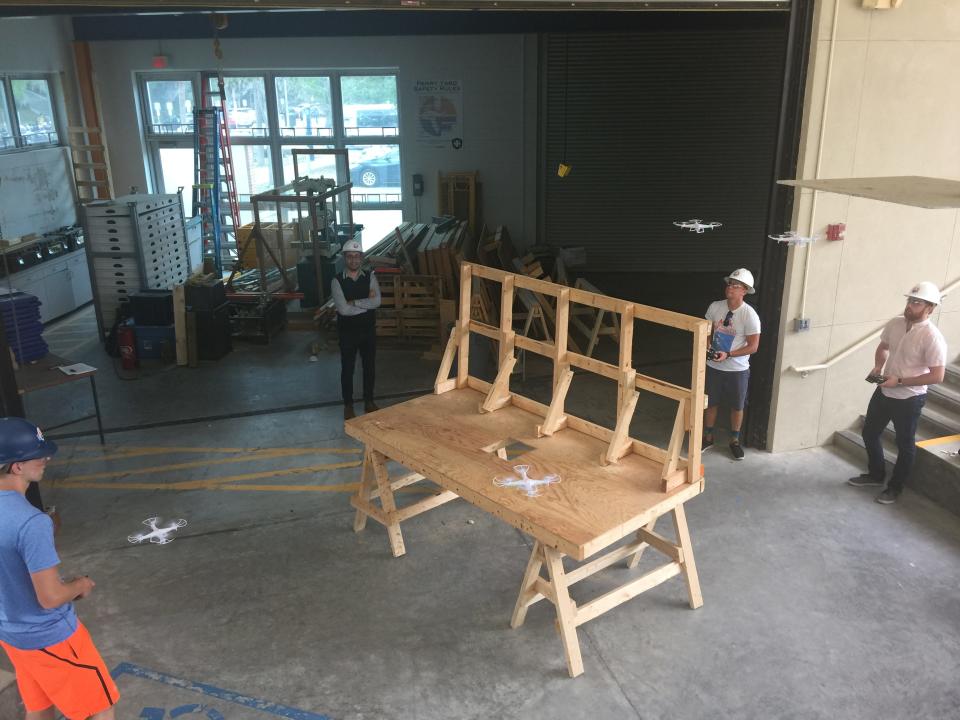As technology displaces jobs, construction workers need education and training to compete
The U.S. construction industry has seen a lag and, in some instances, a decline in productive growth over the last few decades, unlike the manufacturing industry where productivity has nearly doubled over the same time. A labor shortage, supply chain issues and the rising cost of resources are a few causes.
Thus, it is inevitable that the industry will push more technology and automation, which promotes fears about displacing valuable jobs. According to a recent study conducted by the Pew Research Center, 72% of Americans are worried that automation will overtake jobs and 42% think it will disrupt the construction industry.
Unmanned aerial vehicles or drones, 3D-printed housing and self-driving heavy equipment — stuff taken right out of sci-fi stories — are becoming quite prevalent in the industry. The increased use of technology for up-front planning has been shifting work from unskilled positions to skilled positions.

For example, one robotic total station can eliminate the work of three field laborers, but these require a digital plan that is created in the office by a skilled position (typically those with an advanced degree).
The threat of widening economic inequalities and job obsolescence is, in fact, on the rise. Economic inequality in the U.S. is tied to several factors that include technological change and the eroding value of the minimum wage.
One possible cause for economic inequality suggested by skill-biased technical change is that technology raises demand for educated workers that allows them to command higher wages, thereby resulting in increased income inequality. Further, skill-biased technical change implies that technological advances have boosted the productivity of skilled labor relatively more than that of unskilled labor.
Furthermore, the increasing development of new technologies and skill deficiency will continue to widen this gap, as the new technology will require more education and STEM skills to operate. Herein lies the matter: The current workforce must adapt to and create a symbiotic relationship with the emerging technology.

The solution is to provide education and training about the community at all position levels. A worker-technology relationship will result in the adoption of emerging tech that will improve productivity while the worker continuously learns the skill sets needed to use that tech, ultimately ensuring job security.
Fortunately, there is need for construction workers at all the various levels from day laborers to project managers. According to the Commercial Construction Index, a quarterly construction industry economic index published by U.S. Chamber of Commerce, 89% of contractors report a moderate to high level of confidence in the market and 52% of contractors say they will employ more people.
However, a major impediment is the shortage of skilled workers: 88% of contractors still report moderate to high levels of finding skilled workers, and 35% of contractors report turning down work due to skilled labor shortages.
There are opportunities for the local community of Gainesville to find employment in the construction industry. For professional positions, such as project management and superintendents, programs like University of Florida's M.E. Rinker, Sr. School of Construction Management offer accredited degree programs required for certain management positions. Graduate school further offers the ability to research these new emerging technologies.

However, a college degree is not required to secure employment in the industry and may not be the right fit for everybody. Vocational training is essential to the construction industry, as laborers are the backbone to the industry.
Sante Fe College offers a variety of construction and technical programs, such as career and technical certificates and apprenticeships. The University of Florida Training, Research and Education for Environmental Occupations (UF TREEO) provides non-credit continuing education courses, certificate programs and safety training.
Regardless of the position, education is essential for success in construction and other industries. Providing access to STEM education, especially to low-income and underprivileged residents, is essential to reduce the economic gap. Programs like the Gainesville Empowerment Zone Family Learning Center, sponsored by Gainesville For All, are imperative in providing STEM access and family connection to vital community services to ensure that there will be a well-trained workforce.
Regardless of education level or economic status, the issue is clear: The construction industry is in dire need of trained skilled workers. Now is a perfect opportunity for the Gainesville community to enhance their educational and economic wellbeing.
Aaron Costin is an assistant professor at UF’s M.E. Rinker, Sr. School of Construction Management.
Join the conversation
Share your opinion by sending a letter to the editor (up to 200 words) to letters@gainesville.com. Letters must include the writer's full name and city of residence. Additional guidelines for submitting letters and longer guest columns can be found at bit.ly/sunopinionguidelines.
Journalism matters. Your support matters.
Get a digital subscription to the Gainesville Sun. Includes must-see content on Gainesville.com and Gatorsports.com, breaking news and updates on all your devices, and access to the eEdition. Visit www.gainesville.com/subscribenow to sign up.
This article originally appeared on The Gainesville Sun: Aaron Costin: Gainesville programs provide construction education

